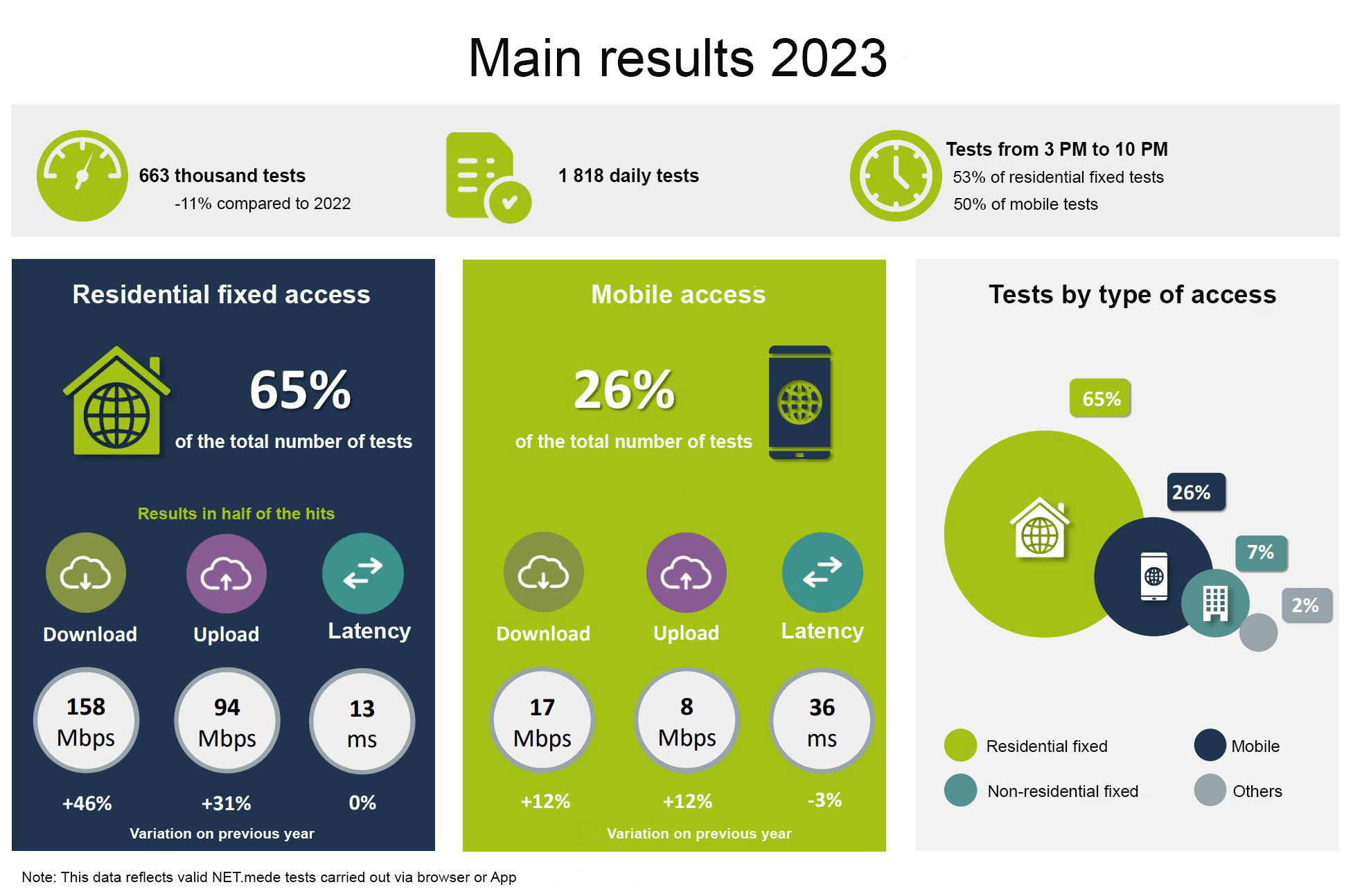In 2023, NET.medehttps://netmede.pt/ performed around 663 thousand Internet access speed tests (an average of 1,818 tests per day).
The number of tests performed on NET.mede decreased by 11% compared to 2022 (79 thousand fewer tests). 2020 and 2021 were characterised by a higher number of speed tests due to the restrictions associated with the COVID-19 pandemic, which contributed to increased user demand for the NET.mede service.
The distribution of tests by type of access (65% for residential fixed access and 26% for mobile access) changed mainly due to the decrease in the number of tests carried out on national fixed access (-69 thousand or -14%).
For fixed residential accesses, the hours with the highest number of tests were between 4pm and 10pm. For mobile accesses, the hours with the highest number of tests were in the morning (10-11am) and in the afternoon (3-4pm).
In 2023, almost all municipalities in Portugal carried out speed tests related to fixed residential access and fixed mobile access (307 and 306 municipalities respectively).
The Lisbon Metropolitan Area and the North recorded the highest number of tests for both fixed and mobile access.
Lisbon was the municipality with the highest number of speed tests in 2023, both for residential fixed and mobile accesses. Sintra was the second municipality with the highest number of tests for residential fixed accesses and Porto for mobile accesses.
Half of (median) speed tests carried out on NET.mede during 2023 found:

The median results for mobile access would be better if only the tests of access with direct connection to the mobile network carried out on the app were taken into account (42 Mbps download speed, 14 Mbps upload speed and 31 ms latency) and even better if only the tests carried out on the app were taken into account, specifically on the 5G mobile network (101 Mbps download speed, 22 Mbps upload speed and 28 ms latency).
Compared to last year, there was an improvement in the median results for residential fixed accesses, with increases in download speeds (+46%) and upload speeds (+31%). The exception was the median latency, which remained the same as 2022. For mobile accesses, the median results analysed improved compared to the previous year, with increases in download speeds (+12%) and upload speeds (+32%) and a decrease in latency (-3%).
The development may reflect, among other things, in the case of fixed accesses, users subscribing to offers with higher speeds and, in the case of mobile accesses, the testing of the 5G network. The mitigation of the impact of the pandemic on results was also visible.
This annual report also includes detachable individual sheets by NUTS III region, allowing for a more detailed visualisation of the areas covered by each of the 21 Intermunicipal Communities (CIM), 2 Metropolitan Areas and 2 Autonomous Regions.

Consult the statistical report:
- NET.mede - Relatório anual 2023 https://www.anacom.pt/render.jsp?contentId=1776583




